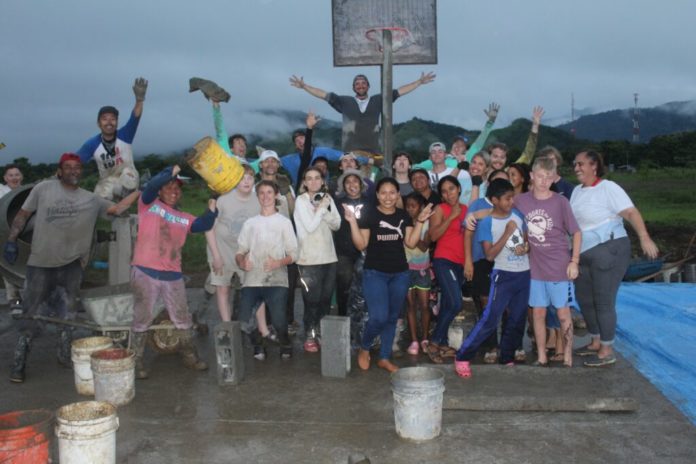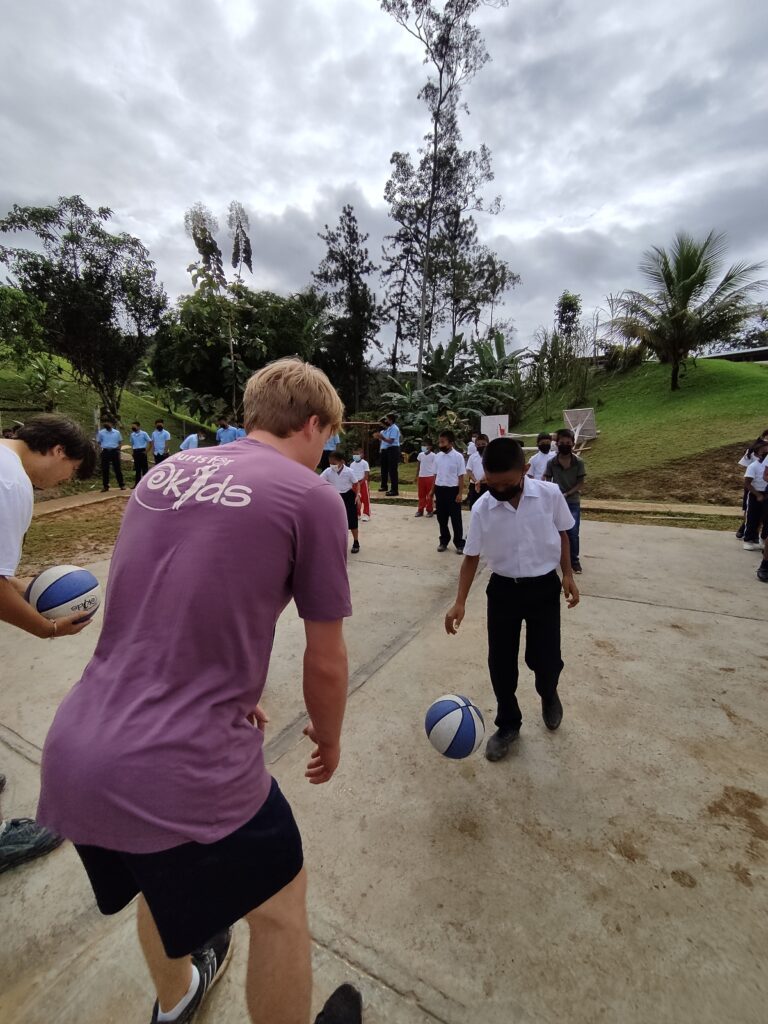
After completing a project in 2006 in the Philippines in a town called Bamban who had expressed the need for a basketball court, several other communities began to reach out to some of the 24 volunteers (mostly from Southwest Washington) who had completed the project with the exact same need. At this time, Derek Nesland, who had helped complete that project, and a founding board decided to launch Courts for Kids officially in 2007.
“When this was happening, we realized we had stumbled across a very pressing need for many communities, particularly rural ones throughout Latin America, Africa and Southeast Asia,” Derek said.
After launching the organization, Derek said his wife Selene Nesland came on staff a short time later and the two have been the key staff members from the beginning years with a very dedicated board of directors.
“The organization was started with a desire to work with communities to provide safe spaces for kids to play sports and to provide meaningful immersion experiences for U.S. volunteers,” Derek said.
Since Courts for Kids’ beginning, Derek said the organization has now built more than 200 multi-use athletic courts in 30 different countries. He said each one has its own story of how the need originated and how they found the organization. Courts for Kids has an open application process on their website, and Derek said they hear from communities around the world regularly who are applying to partner with them. In order to partner with the organization, the communities not only apply, but also commit to raising funds, providing volunteers, completing prep work and many other tasks that ensure their commitment to the project.
Derek said Courts for Kids’ projects have also become popular for U.S. volunteers because it’s a very unique opportunity to be fully immersed in a community and working together on a project that is beneficial to the entire community.

“Our projects are very manual labor intensive but do not require any technical expertise from our volunteers,” he said. “If they can shovel, carry wheelbarrows or carry buckets they can be a vital contributor to the project.”
Derek said courts are paid for with a combination of factors:
- Community contributions include fundraising, soliciting donated or discounted materials, labor contributions, etc.
- Each U.S. volunteer either fundraises for pays for their project portion, which includes court materials and supplies. These volunteers can raise money directly through the Courts for Kids’ webpage, but Derek said they have also seen many creative fundraisers, from bunco nights to selling tamales.
- The organization has corporate sponsors for each project. Fabpro Polymers donates fiber mesh to reinforce concrete, Blankenship Associates donates basketball rims for every project and Jfit donates custom Courts for Kids basketballs to leave with the community.
Although Derek said Courts for Kids hasn’t made growth a primary objective, the organization has seen a steady increase in the number of annual projects, reaching 30 in 2019. During Covid, the organization was unable to complete any projects in 2020 or 2021, so 2022 has been a bounce-back year for Courts for Kids, having completed 12 projects in a rebuilding effort.
“One other way we have grown has been the addition of staff in other countries,” Derek said. “We have county directors now in Panama, Costa Rica, Dominican Republic and Guatemala. These staff and their relationships with our partnership communities are key to our success. We have also established key partnerships with many high schools and university athletic departments who provide groups for projects annually. There are actually too many to list without leaving people off, but we are grateful for these partners.”
Derek said Courts for Kids has a base of donors who were actually vital in carrying them through the pandemic. Interested donors can find a lot of information on the organization’s webpage in they are interested in making financial contributions.
“Some other non-monetary ways businesses could get involved is through donations of new soccer balls, volleyballs or volleyball nets,” Derek said. “One of our big dreams would be to get connected with cement companies in various countries, as cement is our largest expense for every court. Some businesses have used a Courts for Kids trip as a community building exercise within their team, so that is another way to help make a court project a reality.”
To learn more about Courts for Kids and how to get involved, visit their website at courtsforkids.org.





